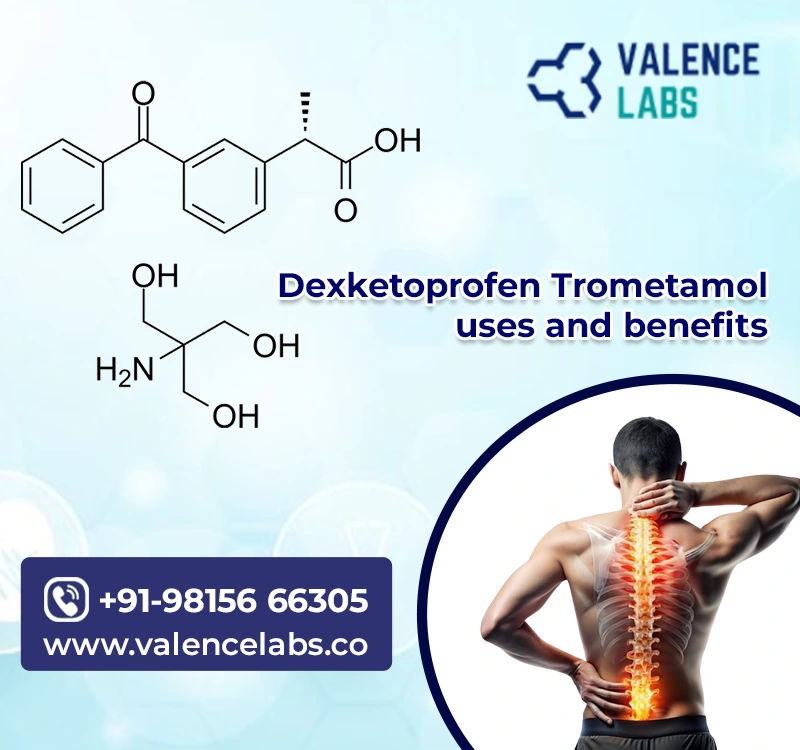What is the Difference Between a CMO and a CDMO in Pharma?

FAQs About Active Pharmaceutical Ingredients (API)
November 27, 2024
Top 10 Pharma API Manufacturers in India 2025
December 14, 2024When you’re diving into the pharmaceutical industry, you may come across two terms that sound similar but serve different roles: CMO and CDMO. If you’ve ever wondered what the difference is between a CMO and a CDMO in pharma, you’re not alone! These acronyms are commonly used in the industry, but they represent distinct types of organizations that play important roles in the manufacturing and development of drugs.
In this blog, we’ll break down what a CMO and CDMO are, how they differ, and why it’s important to understand these differences, especially if you’re working with or investing in the pharmaceutical sector.
What is a CMO in Pharma?
A CMO stands for Contract Manufacturing Organization. These are companies that specialize in the manufacturing aspect of pharmaceuticals but do not necessarily engage in drug development. Simply put, a CMO focuses on producing drugs on behalf of a pharmaceutical company. They often take on the responsibility of large-scale production of medicines and are contracted to manufacture drugs according to specific standards, regulations, and quality control guidelines.
Pharmaceutical companies might hire a CMO when they don’t have the resources or infrastructure to manufacture their products in-house. This can happen for a variety of reasons, such as limited capacity, expertise, or investment in production facilities. CMOs usually handle the production of drugs after the research and development phase has been completed, though some CMOs may also be involved in earlier stages, such as scale-up production.
Key Features of a CMO:
- Focus on Manufacturing: CMOs specialize primarily in the production of pharmaceutical products.
- Outsource Production: They allow pharmaceutical companies to outsource their manufacturing needs.
- Good for Large Scale: CMOs often handle large-scale manufacturing needs, but they don’t typically handle development or research.
- Limited R&D Involvement: They generally don’t participate in the research and development of drugs.
What is a CDMO in Pharma?
On the other hand, a CDMO stands for Contract Development and Manufacturing Organization. CDMOs offer a broader range of services compared to CMOs. Not only do they manufacture drugs, but they also play a significant role in the drug development process itself. This means that CDMOs are involved from the early stages of drug development, such as formulation development, clinical trials, and regulatory support, all the way through to commercial production.
The key difference here is that CDMOs provide both development and manufacturing services. They work closely with pharmaceutical companies from the very beginning of the drug development process and continue to support them through the final stages of commercialization.
For pharmaceutical companies, partnering with a CDMO can streamline both the development and production processes, leading to faster time-to-market and fewer potential roadblocks.
Key Features of a CDMO:
- Focus on Both Development and Manufacturing: CDMOs handle both drug development and production.
- Start-to-Finish Service: They assist in everything from drug formulation and clinical trials to final production.
- Expertise in R&D: CDMOs often have specialized teams to assist with research and development.
- Regulatory Support: CDMOs also help with the regulatory filings needed to bring drugs to market.
What is the Difference Between a CMO and a CDMO in Pharma?
While both CMOs and CDMOs are essential players in the pharmaceutical industry, they cater to different needs. Below, we’ll highlight the key differences between these two types of organizations to make it easier to understand when a pharmaceutical company might choose one over the other.
| Feature | CMO | CDMO |
|---|---|---|
| Main Service | Manufacturing of drugs | Drug development and manufacturing |
| Focus | Primarily on the large-scale production of drugs | Covers both the development and manufacturing phases of drug creation |
| Role in Drug Development | Limited involvement, typically post-development | Plays a key role in the early stages, including R&D and formulation |
| Range of Services | Mainly manufacturing | Full service from development to manufacturing |
| Regulatory Support | Limited support for regulatory filings | Extensive support for regulatory filings and compliance |
| Expertise | Expertise in large-scale drug production | Expertise in both drug development and production |
| Flexibility | Typically, less flexible in terms of development | More flexible and adaptable, offering end-to-end support |
| Target Clients | Primarily large pharmaceutical companies | Both large pharma companies and small biotech/start-ups |
CMO vs. CDMO: Why Choosing the Right Partner Matters in Pharma
Understanding the differences between a CMO and a CDMO is crucial for pharmaceutical companies when deciding which partner to choose. Here are some considerations:
When to Choose a CMO:
- Large-Scale Production: If a company has already developed the drug and only needs someone to handle large-scale production, a CMO is an ideal choice.
- Cost-Effective Manufacturing: CMOs can help reduce manufacturing costs for companies that lack the necessary infrastructure or capacity for production.
- Limited Development Needs: If the company has already completed the R&D process and needs assistance only with manufacturing, a CMO can be a perfect fit.
When to Choose a CDMO:
- End-to-End Services: Companies looking for a partner that can take a drug from its early development phase through to commercial production may prefer a CDMO.
- Faster Time-to-Market: CDMOs can help reduce time-to-market by providing comprehensive support, from early-stage development to regulatory approval and production.
- Need for Flexibility: Startups or smaller pharma companies may prefer a CDMO because of the flexibility and specialized expertise they offer in both development and manufacturing.
Why Are These Differences Important?
Choosing the right type of organization to work with can make or break the success of a drug. For companies, understanding the distinction between a CMO and a CDMO ensures they select the right partner for their specific needs. Here’s why these differences matter:
- Streamlining the Process: If a company needs help from drug development to manufacturing, a CDMO offers a one-stop solution, making the process smoother and faster.
- Cost and Time Efficiency: Choosing a CMO when only manufacturing is needed can save costs. On the other hand, a CDMO can be more efficient when both development and production are required.
- Regulatory Considerations: Both CMOs and CDMOs must adhere to strict regulatory standards, but a CDMO may be better equipped to navigate complex regulatory hurdles due to its involvement in both development and manufacturing stages.
Conclusion
In conclusion, CMOs and CDMOs play critical roles in the pharmaceutical supply chain, but they serve different needs. CMOs are best suited for large-scale manufacturing of drugs, whereas CDMOs offer a broader range of services that include both the development and production of drugs. Pharmaceutical companies must carefully assess their needs—whether they require a manufacturing partner or a more comprehensive, end-to-end solution—before selecting a CMO or CDMO.
At Valence Labs, we specialize in helping pharmaceutical companies with their development and manufacturing needs, ensuring they have the right partners to bring their products to market efficiently and successfully.
Whether you are a startup or a large pharmaceutical company, understanding the difference between a CMO and CDMO can save time, reduce costs, and ultimately help you succeed in the competitive pharmaceutical industry.
FAQs (Frequently Asked Questions)
- What’s the main difference between a CMO and a CDMO?
The primary difference is that a CMO focuses mainly on manufacturing drugs. In contrast, a CDMO provides end-to-end services that include both the development (formulation, clinical trials) and manufacturing of medicines. CDMOs are involved in both the early and late stages of drug development, making them a more comprehensive solution. - When should a pharmaceutical company choose a CMO?
A pharmaceutical company may choose a CMO if they already have a developed drug and only need support with large-scale manufacturing. CMOs are ideal for companies that do not have the capacity or infrastructure to produce drugs in-house. - When should a pharmaceutical company choose a CDMO?
A CDMO is a better choice when a company needs support in both drug development and manufacturing. CDMOs are especially useful for companies looking for a partner that can handle everything from the early stages of formulation to clinical trials and final production. - Can a CDMO help with regulatory filings?
Yes, CDMOs often offer regulatory support, helping companies navigate the complex regulatory processes required to bring a drug to market. This is an essential service that many CDMOs provide in addition to drug development and manufacturing. - Which option is more cost-effective: CMO or CDMO?
The choice depends on the specific needs of the pharmaceutical company. If a company only requires manufacturing, a CMO may be more cost-effective. However, if both development and manufacturing are needed, a CDMO might offer a more streamlined and cost-efficient approach overall, as it provides comprehensive services.





